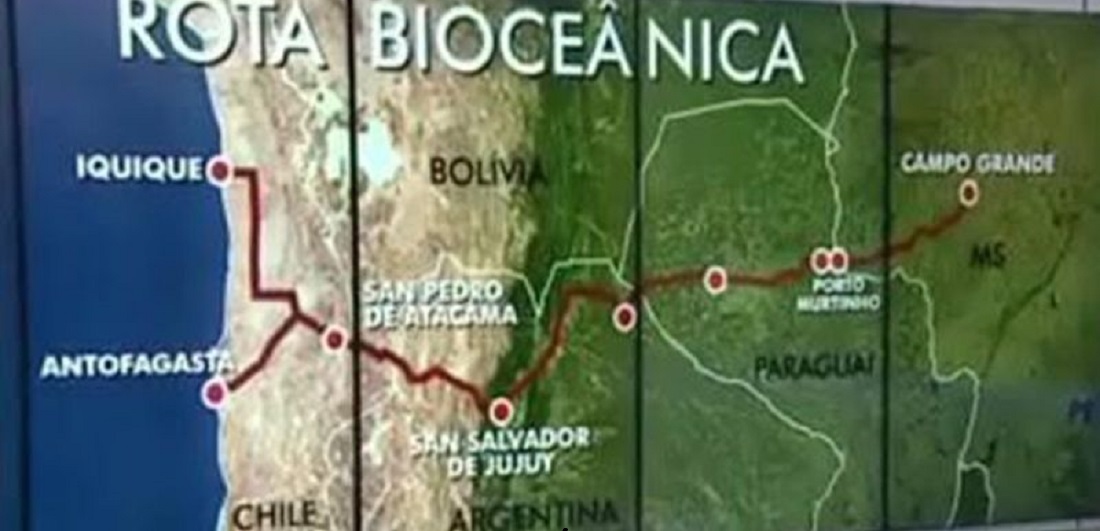
Bioceanic Road Corridor to bring costs 12.63% down per tonne
Sep, 28, 2022 Posted by Gabriel MalheirosWeek 202239
A study conducted by Brazil’s Planning and Logistics Company (EPL) in Mato Grosso do Sul found that the Bioceanic Road Corridor will bring costs down across the entire productive chain of the state.
Distances, time, and costs will grow shorter, providing greater competitiveness for Brazilian products to be exported via the new route.
In a technical study, EPL showed that the exports that travel from Campo Grande to the Porto of Santos and from there to Shanghai, China, cover a distance of 25,245 km with a lead time of 54 days and 8 hours.
These same cargo loads leaving Antofagasta – in Chile – travel a distance of 20,929 km, with a lead time of 42 days and one hour. Therefore, by taking the second route, these items would travel 4,316 fewer kilometers and save up to 12 days and 7 hours.
In terms of cost savings, the results are also satisfactory.
According to the study, a tonne of any product leaving the Port of Santos costs around USD 342,44 to transport, while doing so by Antofagasta costs only USD 299.20.
Translating it into figures, the savings will reach US$ 33.24 per tonne, a cost 12.63% lower.
According to the public research company, decreased logistics costs and travel times would lead to increased commercial exchange between Brazil and possible new partners abroad, increasing competitiveness and fostering regional development through the formation of industrial centers and productive clusters, facilitating the insertion of the South American country in the global chain and aggregating value to Brazilian products.
Jaime Verruck, Secretary for the Environment, Economic Development, Production, and Family Agriculture (Semagro), explained that the most challenging phase of implementing the Bioceanic Road Corridor – or Bioceanic Route – has already passed.
“Brazil, Paraguay, Argentina, and Chile are striding in the infrastructure works, and everything is likely to be ready by the end of 2025,” said Jaime Verruck.
In addition to the cost, time, and shorter distances, what catches the attention of producers in Brazil is that goods from Mato Grosso do Sul will be able to use four Chilean ports.
“We will save a significant amount of time and productivity. The next hurdle will be to persuade Argentines of the importance of establishing a single customs head at Porto Murtinho. [On the bright side], it was very promising when we had the same conversation with Chilean and Paraguayan authorities. All of the projects have already been approved by the legislatures of the four nations, and a change in government – at the federal level – will not affect the progress of the works,” Verruck explained.
The bridge connecting the Brazilian state of Mato Grosso do Sul and Paraguay in Porto Murtinho – for R$ 150 million, with a length of 13 km – will be ready by December 2024.
The construction work has already started on both sides of the border. In Argentina, 100 km of roads and a bridge are still missing. In Chile and Paraguay, the works have already been tendered.
“Regional governments have entered the circuit and are doing their part, as well as our government, with the construction of the ring road and the duplication of a section of the track,” stressed Verruck.
The anticipation of a connection between the Atlantic and Pacific oceans has encouraged investments in additional terminals and other facilities along the route, such as a truck parking lot, in Porto Murtinho.
According to Jaime Verruck, the capacity is 400 trucks.
“The next challenge is to make Porto Murtinho have a Free Trade Export Processing Zone (ZPE),” commented Verruck.
The EPZ is a free trade area in which companies focused on the production of export-bound goods can lay roots.
Companies that install themselves in EPZs have access to tax, exchange, and administrative benefits specific to them.
“In the instance of Porto Murtinho, for example, products exported or imported there could be assembled here in Mato Grosso do Sul,” Verruck explained.
The secretary also said there is no longer the slightest risk of delayed work.
Source: Correio do Estado
To read the full original article, please go to: https://correiodoestado.com.br/economia/rota-bioceanica-tera-custo-de-exportacao-1263-menor/405404
-
Ports and Terminals
Jul, 22, 2024
0
Port of Santos publishes yet another issue of “Facts and Data” report
-
Ports and Terminals
Nov, 30, 2020
0
Ministry of Infrastructure receives studies for lease of two port terminals at Maceió
-
Aug, 02, 2024
0
Brazil celebrates recent access to Costa Rican avocado market
-
Jan, 13, 2022
0
Chile will import Brazilian Tahiti limes

